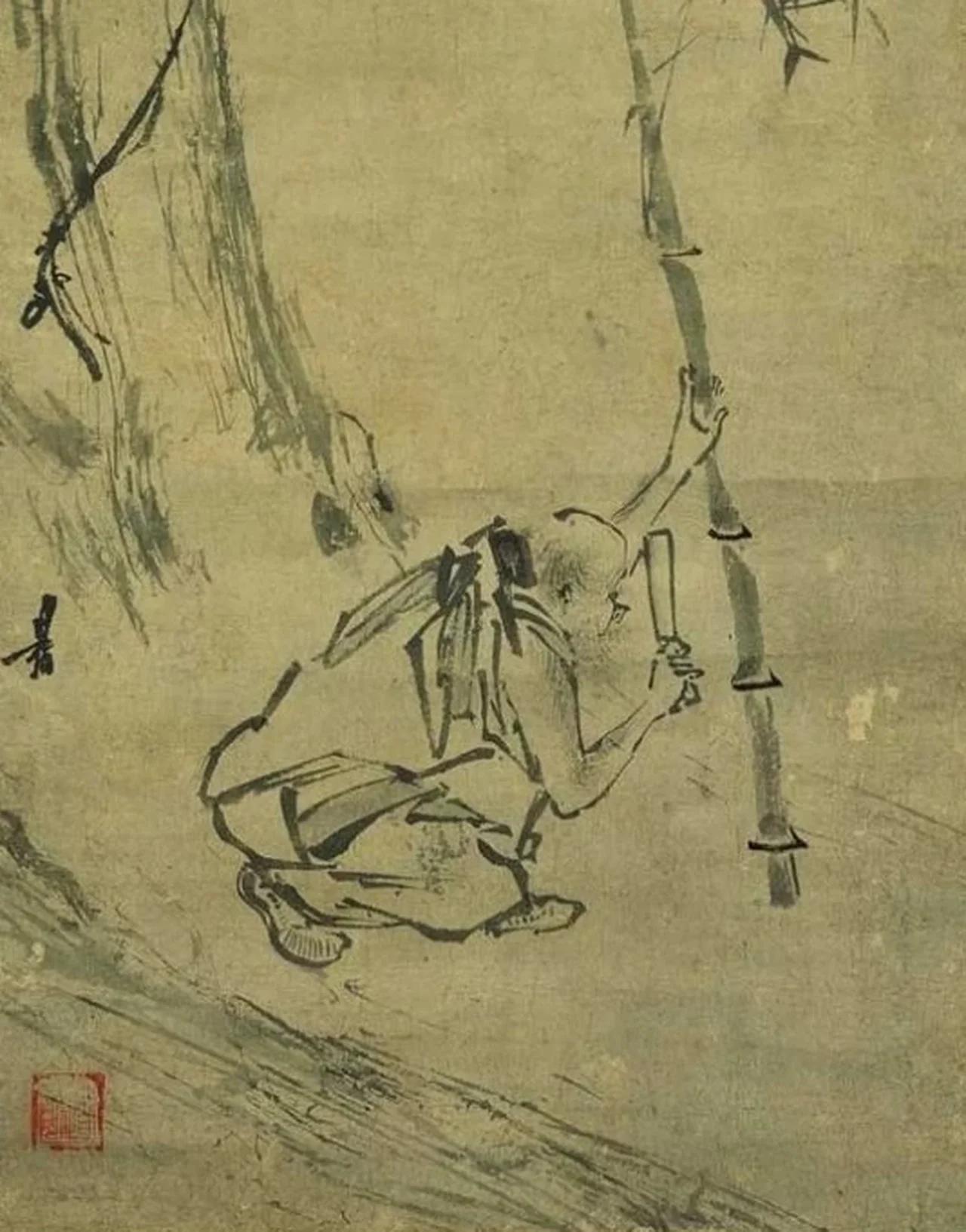
www.theamericanconservative.com
Europe’s Population Quandary
Demographics
Europe’s Population Quandary
Technocratic solutions obscure what is fundamentally a problem of ethos.
Credit: Pier Marco Tacca/Getty Images
In February 2025, Hungary’s Prime Minister Viktor Orbán announced that mothers with two or more children would be exempted from income tax for life. This is the latest, and most ambitious, of his government’s attempts to reverse Hungary’s population decline. It addresses an issue which haunts Europe’s future: the declining willingness of European women to have children.
Falling birthrates are not unique to Europe: China, Japan and South Korea have among the lowest fertility rates in the world. A falling birthrate is common to all prosperous societies. It has not hitherto been regarded as a problem, but rather as the solution, natural or planned, to the Malthusian problem of overpopulation.
But overpopulation is not Europe’s problem. Ever since the Industrial Revolution, population, technology, and per capita income have advanced in step. So Europe’s declining fertility cannot be seen as a natural response to the pressure of numbers on resources or, as in China’s case, a planned reduction in population size through a “one child” policy. It more accurately reflects what the late Pope Francis called a “demographic winter”—an exhaustion of the will of a population to reproduce itself.
The specter of fertility collapse has haunted European thinkers for a hundred years or more. In his Decline of the West (1917), Oswald Spengler predicted that Europe would come to be dominated by “the sterile male and the unfruitful woman.” Children would no longer happen because “intelligence at the peak of intensity can no longer find any reason for their existence.” Most recently Niall Ferguson observed that “Europe is depopulating itself at a rate unseen since the Black Death”.
On June 10 of this year, the United Nations Population Fund (UNFPA) released its State of World Population report. This confirmed that fertility rates across European nations are well below the replacement-level total fertility rate of 2.1. The United Kingdom stands at 1.5, France at 1.6, and Germany at 1.5. Quite simply, our societies produce too few babies and too many pensioners. If this trend continues, European populations will die out.
European population growth has been slowing down for some time, but only recently has the birthrate fallen below the replacement rate. In the 19th century Europe’s population doubled, from 200 million to 400 million, an annual growth rate of 0.77 percent, with negligible immigration. (In fact, net migration was strongly outwards.) Europe’s present population stands at about 745 million; since 1990, population growth has plummeted to almost zero (around 0.08 percent). On current trends, Europe’s population will peak next year and will then start a long-term decline to under 600 million by 2100.
The fertility fall would have been much greater without immigration. Some 110–150 million people from outside Europe have settled in European countries since 1950, with net immigration turning decisively positive after 1990. Since 1990, net migration into Europe has been the only thing keeping many European populations from declining outright. Europe now counts around 87 million foreign-born residents. Roughly 11 percent of the continent’s population now accounts for a quarter of all births. Population maintenance in Europe increasingly depends on a continuing flow of non-European immigrants—a dynamic that raises profound questions for economics, social cohesion, moral duty, and the very definition of national communities.
The decline in Europe’s birthrate has evoked two responses. Liberals have sought population rejuvenation through immigration: Immigrants will boost population by having more babies than the indigenous inhabitants. In contrast, Viktor Orbán’s Hungary has pursued the most ambitious pro-natalist strategy in Europe: Not more children, but more Hungarian children is his answer. What are the arguments on both sides?
Since the Second World War, European businesses have consistently lobbied for high immigration to fill labor, skills, and entrepreneurial shortages, and as a way of reducing wage pressure at full employment. Despite popular opposition, the inward flow has continued and even accelerated. In Britain, for example, net immigration between 2013 and 2024 totaled 5 million, latterly mostly from outside Europe; this immigration underwrote practically the whole of Britain’s modest GDP growth over the period.
The argument for immigration is that it fills gaps in the labor market, boosts the birthrate (non-European immigrants typically have larger families), and shifts the age profile of the population downwards, relieving the budget of health-care and pensioner costs. Nevertheless, it is far from clear that higher immigration will “fix” the population problem. The Cambridge economist Robert Rowthorn has argued that immigration as a population policy is unsustainable. Young immigrants eventually grow old themselves, and unless the host country continues to import ever larger numbers of new migrants each year, the demographic structure will revert to its older profile. In Rowthorn’s words, “rejuvenation through immigration is an endless treadmill.”
Beyond this, relying on mass immigration as a demographic safety valve brings its own economic and social complications. Since its economic benefit to employers is to improve labor efficiency by reducing wage costs, it is hardly surprising that it should be opposed, especially by lower-skilled native workers whose earnings and jobs are especially at risk.
Beyond economics, there are profound social consequences. Large-scale immigration will strain the social fabric if it outpaces a society’s capacity to integrate new arrivals. Communities are not just labor markets; they are built on shared idioms, norms, and a sense of belonging. What Adam Smith called “benevolence” spreads outwards in a widening gyre from families to communities, and can easily turn into its opposite if its required spread is too fast and too far. For example, people may become less willing to pay taxes into a system they feel is supporting outsiders at their expense, and political support for redistribution or public goods can easily decline.
But the social discontent caused by mass immigration may run much deeper. As David Goodhart has put it, “most of us prefer our own kind.” The loss of a shared national narrative—what it means to be “us”—will fuel populist politics. It has already done so. The UK and Europe have seen growing voter backlash against uncontrolled immigration, from the Brexit vote in the UK to the rise of anti-immigration parties all over Europe. The conclusion is that though economic growth through immigration can blunt the edge of social resentment, it cannot altogether remove it if other requirements for social harmony are ignored.
If the “immigration answer” to Europe’s demographic winter is simply a short-term expedient fraught with complications, what is the alternative? The favoured one, with a long historical pedigree, is pro-natalism. This aims to revive population growth from within by encouraging native populations to have larger families. For example, France adopted a Family Code in 1939 to reverse its long-standing population decline, providing for family allowances, tax breaks for large families, maternity benefits, and restrictions on access to contraception and abortion. That the policy was explicitly aimed at redressing France’s population deficit with Germany shows the nationalist inspiration of many pro-natalist policies.
Contemporary pro-natalism is conspicuously, but not exclusively, associated with Hungary. Orbán’s government has explicitly rejected mass immigration as a solution to population decline—his slogan has been “no migration, rather more Hungarian children”. Instead of importing people, Hungary has opted to incentivise its own citizens to have more babies. But Orbán is not alone. Italy’s Prime Minister Giorgia Meloni has promised to raise the annual Italian birthrate from 350,000 to 500,000 by 2033; in 2016 Poland’s Law and Justice government offered cash payments to all families for every second and subsequent child.
Cultural nationalism comes with a cost. Since returning to power in 2010, Orbán’s government has rolled out tax cuts, housing grants, low-interest loans, and even vehicle subsidies to encourage larger families. Hungary now spends around 5 percent of its GDP on pro-family subsidies, far more than most countries spend on family support (or on defense). Public funds help cover everything from cheap housing loans (over 250,000 families have benefited) to minivan purchases for large families. Meloni’s policy is to work through a mixture of baby bonuses, kindergarten bonuses, tax breaks, childcare subsidies, subsidised egg freezing, and such like.
So far Orbán’s lavish incentives have had only a modest effect. Hungary’s total fertility rate (TFR) hit a historic low around 1.23 children per woman in 2011. As of 2024, after nearly fourteen years of pro-natalist policies, it has risen to roughly 1.56. In percentage terms, that’s a significant increase (about 25 percent higher than the nadir). Hungary went from having one of Europe’s lowest fertility rates to roughly the EU average (the EU-wide TFR is about 1.5). Hungarian officials are quick to point out that without their policies it’s unlikely the birthrate would have climbed at all. Yet 1.56 is still well below the replacement level of 2.1, and remains on the lower end of Europe’s national fertility rates. In plain terms, despite spending billions of euros, Hungary has not (at least not yet) sparked anything resembling a baby boom. The government insists that its pro-natalist measures are investments in the long term, and that patience is required. Demographic turnarounds, they argue, can take a generation to truly materialise, and the early years are about laying groundwork. This may be true, but it also invites the skeptical eyebrow.
It is important to distinguish between maintaining the European population and maintaining the population of Europe. The immigration solution, which aims at the second, is purely secular: its goal is to keep up numbers in Europe, not keep up the numbers of Europeans. Pro-natalism, on the other hand, attaches great value to maintaining a Christian as distinct from any population. As Orbán put it in a recent speech: “If you lose Christianity, sooner or later you will lose your real national existence as well.”
Pro-natalist policies come with strong backing from the Roman Catholic Church. Catholic teaching has involved it far more than other major Christian faiths in population and family questions, and Catholic leaders have been far more willing to speak out than other Christian clerics on the perils of Europe’s present population decline.
In the 1960s an important aim of the Roman Catholic Church was to defend Catholic teaching against the charge that its ban on abortion and contraception was causing overpopulation and starvation in the poorest countries of the world. The Church’s reply was that it was up to “responsible” parents, recognising their duty to God, to decide whether to have more or fewer children, and give effect to their decision by “natural means” (Populorum progressio, 1967; Humanae vitae, 1968).
This would seem to make the Church indifferent to both the size and composition of a population, provided it was the result of moral choices. Yet this is not the case. The emphasis in Catholic teaching on the divine source of fertility and the “procreative significance” of marriage has made it strongly favour fertile over barren unions. In the last years of his pontificate, Pope Francis repeatedly called on European governments to promote robust pro-family policies: stable jobs, affordable housing, affordable childcare, and better support for women balancing work and motherhood. This was allied with a strong critique of consumerism. “Homes,” said the pontiff, “are filled with objects and emptied of children.” The number of births “is the first indicator of the hope of a people.”
In placing lack of hope at the heart of today’s declining fertility, Pope Francis rejected the liberal view that it was a natural consequence of prosperity and female emancipation. He was asking, in effect: Who in their right mind would want to bring children into the world we are building for them?
There is nothing specifically European about the Church’s pro-natalist policy. Historically it has upheld the natural right to migrate (Exsul familia, 1952). Pope Francis emphasized the moral imperative of welcoming immigrants, describing them as “the children we don’t want to have.” Nevertheless, although the Church might be indifferent to the ethnic composition of a population, it cannot be indifferent to its religious affiliation. It seeks the maintenance and enlargement of a Christian population, not any population. It could not, for example, support the replacement of a Christian Europe by an Islamic one. In practice, therefore, the Church is committed to maintaining a specifically European population.
Today’s pro-natalist discourse has resonated most in Catholic countries like Hungary, Italy, and Poland. In these countries, politicians can still openly avow national identity in religious terms, something that has become impossible in the more resolutely secular north-western Europe. (Interestingly, the United States has its own form of Christian pro-natalism among fundamentalist Protestants, who see childbearing as a religious duty.)
What, then, should Europeans do? The liberal view is that declining fertility is the result of economic prosperity, better education, and more varied lifestyle choices for women. It is a sign of progress, and one urgently to be wished on those poor countries whose birthrates exceed their replacement ratios. If declining fertility in Europe leaves vacancies for services which need doing, these should be filled by immigrants to the benefit of both host and migrant. Most liberals would want to do little more about Europe’s fertility blight than to make it easier for a woman (or family) to choose to have children—for example, by providing childcare from birth onwards.
Against this stands the view that declining fertility is a sign of despair, not liberation. When a society loses the will to reproduce itself, it is in truly existential trouble. Europe today seems perilously close to that condition. The demographic question is not merely about numbers, but about the future of nations as living cultures. No technical fix can substitute for a loss of desire to go on living.
The balanced path forward will certainly require a mix of measures, including some immigration, but the center of gravity should shift toward pro-natalism. That means European nations taking active steps to make family formation not just more feasible—something most liberals would accept—but more morally appealing, both in terms of individual duty and civilizational pride. The only truly lasting resolution to Europe’s demographic crisis will be one that restores its people’s pride in being Europeans. If that doesn’t happen, it is finis to European history.
The post Europe’s Population Quandary appeared first on The American Conservative.















